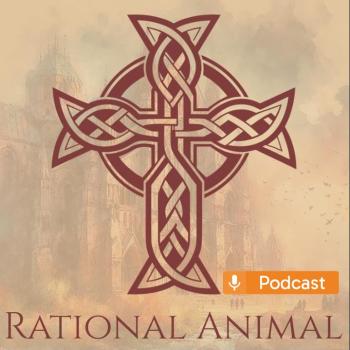The problem with the intimacy that we face in half-intended sex is a problem of the embodied person. Practically speaking, in sex and in sexual intimacy, human persons can and are looking for a lot of things beyond the revelation of an I/Thou structure of experienced being, and these other things connect to many of our diverse orientations as ensouled bodies/embodied souls.
Nevertheless, our interpersonal attitude, our social nature, specifically orders our erotic expression and directs that expression’s intention towards a fulfillment of desire in which we see the other and the other, likewise, sees us. The sexual encounter of a romantic couple seeks to fully express this revelation and presence of person and intention, even if it fails to express itself perfectly.***
However, the interpersonal attitude is also what leads to the difficulties of this body problem. In the encounter of persons with some knowledge of each other, some social basis of acquaintance, the couple is aware that they are not authentic in their bodily expression of interpersonal intentionality towards the other: they do not mean all that their bodies suggest they do. This awareness forces them, for the sake of politeness, to dwell only on the body, to the exclusion of the person. However, the person cannot so easily be divorced from the body.
For those of us who are raised in the Catholic Faith in particular, though that doesn’t exclude those who weren’t from the experience, we understand that sex belongs in marriage, if only through some ingrained intuition that the revelation of the person in the sexual act is a revelation most proper to a mutual vowing of I take Thee.**** So, when we look for somebody because we need human heat or because we want to or because rebellion, we are aware of their person, for all we try to focus on their body. All the while, we cannot escape the person. And this leads to shame. We know we are naked, and we hide ourselves because we are ashamed.
How can you hide yourself in such intimacy? Only by hiding your intention, akin to lying though the body, and retreating into yourself. By hiding within the walls of yourself, gazing beyond the other and seeing not them in their personality, but whatever you will yourself to see. In this, your soul is intentionally aimed at yourself, while your body professes an intentionality towards the other not backed by substantial content. This discontinuity leads to a fracture between the soul and body; in that moment, the person faces the recognition that “I do not do the good that I want, but the evil I do not want is what I do” (Romans 7:19). This discontinuity and the experience of the self-inflicted fracture is recognized in the experience of shame, which reiterates our failure through reorienting us to reality— our eyes are opened and we have experiential knowledge of good and evil.
Shame, which Scruton characterizes as a “fear of the other’s judgment [that] becomes a fear of discovery, a fear that the other will know him as he knows himself” is in flat contradiction to intimacy. So, when it arises during the moment of intimacy, we have to create emotional and mental barriers to protect ourselves from the discovery and the consequent judgment arising from the discovery that I do not intend what I seem to ask you to intend, and to protect myself from the revelation that you do not intend what I wish you would intend—we are warm bodies, and yet the truth is that we cannot keep each other warm, because we can’t bear to be present. The shame isn’t false, perhaps it is even good to a degree. Nevertheless, the immediate response to that shame is to withdraw from the other; so, while our bodies express the actions of union, the lack of honest intentionality leaves us alone.
And this is being alone, in the arms of another, it is because we could not bear to join them in community because then they might know us and see us. And what then? What should someone do when they have seen that abyss? Well, to quote Julia’s confiteor in Brideshead Revisited,
How can I tell what I shall do? You know the whole of me. You know I’m not one for a life of mourning. I’ve always been bad. Probably I shall be bad again, punished again. But the worse I am, the more I need God. I can’t shut myself out from His mercy…I’m not quite bad enough…to set up a rival good to God’s.
You can always choose. It’s a choice between goods. To seek to force the person to appear to you in the flesh. Or to seek the Person who assumed Flesh to dwell among us.
And neither is fun, and each has a cost. Because to choose between the body and the soul is a good way to find yourself fractured, perhaps so deeply you don’t fully see it: the unity of soul and body is nowhere as apparent as when only one can be found—either as a ghost or as a corpse. The other route is harder because, we are forced to see the fracture, we find it in ourselves, between us and the other and between our own soul and body, and we must face it. There is redemption for us, but we cannot be forgiven for the sin we won’t confess.
And yet, God loves you. And you are not alone and you are not ruined and you have not incalculably errored. And you are not a single night, or even the sum of single nights or even many nights; you are not the decisions you wish you had never made. And to walk away from the Faith because of shame is to forget that Christ is a Man who can name all of your sins and while you were still a sinner, He died for you. He fractured His soul and body as Man, and He reunited them as God. He comes to heal your body, but only so you might see that He comes to heal the embodied person.
You are you—embodied. Yet, let me say this, in particular to those who have perhaps found themselves seeking more than human heat: you are more than a single poor choice, or even a string of bad choices. For nothing, save your embodiment—your openness to grace, even through the darkness of shame—can ameliorate the effect of those choices. To think otherwise is, as my friend Matthew Sewell notes, “to refuse to recognize the person as they [or we] sit in the present,” to refuse to see that the person you have been is not the person you are called to be. God can change you; perhaps more radically, God can and will heal you and the wounds you bear. Sinners can become saints. Sex at the wrong time, with the wrong person might hurt, it might suck, but it isn’t everything you are, nor need it be the sum of who you might be.
The worse we are, the more we need God. And if Christ, the Word Who assumed a Body to break for our redemption, will not condemn us, but instead tells us to “go and sin no more,” then we have a cause for hope. It’s clear that you can be intimate and yet alone. But the converse, which I hope you can hear no matter how much it terrifies you to believe it, is that you can still be intimate and loved. Even and especially with Christ. Someone can see you and your shame and not refuse your gaze. Moreover, if Christ can gaze at all of us from His Cross, how can any of us add to the burden of our brothers and sisters? How can we hold against them the sins they have committed, knowing our own shame and failings? The Church is full of people whose bad decisions she calls us beyond. The Church is full of failures who are raised in Christ to be more than the failures that weigh so heavy on us. The Church is full of sinners whom she calls to be saints. You can’t shut yourself out from Christ’s mercy, even if you want to. Because He is present, even if we aren’t. And He will see us, even when we are scared to be seen. And He will clothe us in His Grace, should we choose to discover our own nakedness. And when we have finally run out our tears of shame and regret, He will change our weeping into rejoicing, because He never intended us to live lives of morning. He intended us to live lives of love.
*Assumed name.
**I’m paraphrasing an idea brought up in Robert Spaemann’s Happiness and Benevolence here.
***Because sometimes the couple is tired, or distracted, or stressed, or angry, or the kids are sick, or any number of the wonderful and mundane and boring and human realities that impact and are expressed in sex.
**** This is perhaps because of the fact that the Catholic Faith understands that one of the ends of marriage and sexuality is children, and that this vowed intentionality present when I take Thee constitutes the proper grounding for the procreation and education children, to say nothing of its relation to the mutual building up in holiness of the spouses, though that does exceed our current inquiry.
















